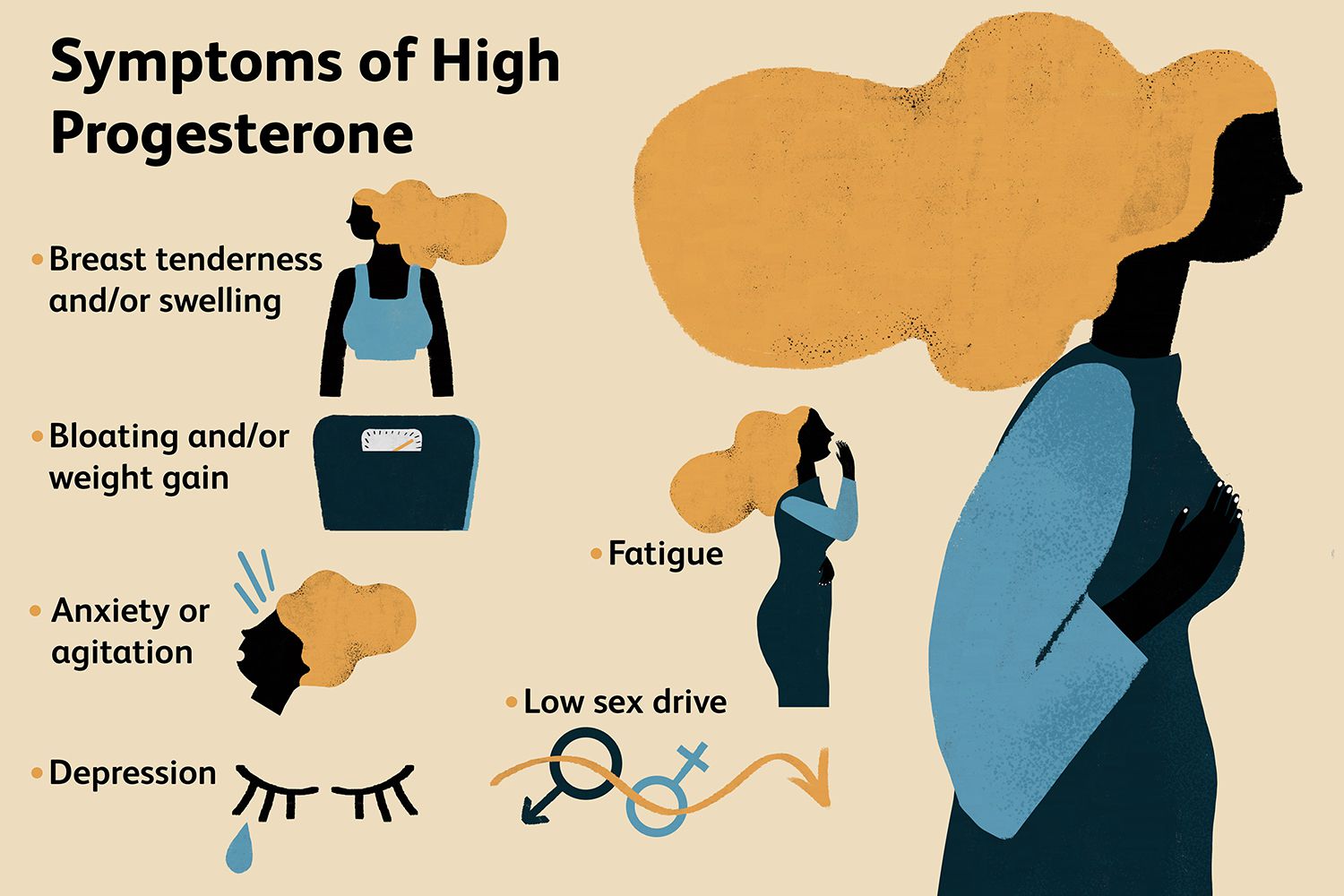Hormone replacement therapy (HRT) is a common treatment for managing symptoms associated with menopause and other hormonal imbalances. Progesterone, a key hormone in this therapy, plays a crucial role in regulating various bodily functions. However, when the balance is disrupted and progesterone levels become too high, it can lead to a range of symptoms. Understanding these symptoms is essential for anyone undergoing progesterone HRT to ensure they maintain a healthy balance.
Understanding Progesterone and Its Role in HRT
What is Progesterone?
Progesterone is a natural hormone produced by the ovaries, placenta (during pregnancy), and adrenal glands. It plays a vital role in the menstrual cycle and pregnancy. In HRT, synthetic or bioidentical progesterone is often used to help manage symptoms of menopause and other hormonal imbalances.
The Importance of Progesterone in HRT
Progesterone is essential in HRT for several reasons:
- Regulating Menstrual Cycles: It helps regulate the menstrual cycle and maintain the uterine lining.
- Balancing Estrogen: It counteracts the effects of estrogen, preventing estrogen dominance.
- Supporting Pregnancy: Progesterone prepares the uterus for pregnancy and maintains it throughout.
Causes of Elevated Progesterone Levels in HRT
Overuse of Progesterone Supplements
One of the primary causes of elevated progesterone levels in HRT is the overuse of progesterone supplements. This can occur if the prescribed dosage is too high or if the individual uses the supplements more frequently than recommended.
Individual Sensitivity to Progesterone
Some individuals may have a heightened sensitivity to progesterone, leading to an increased risk of experiencing symptoms of too much progesterone HRT even at standard dosages.
Incorrect Dosage and Administration
Incorrect dosage and administration of progesterone can also result in elevated levels. It is crucial to follow the prescribed dosage and administration guidelines provided by a healthcare professional.
Symptoms of Too Much Progesterone HRT
Physical Symptoms
Weight Gain
Excess progesterone can lead to weight gain due to increased appetite and fluid retention. This symptom is particularly concerning for individuals who are already managing their weight.
Bloating and Fluid Retention
Bloating and fluid retention are common symptoms of too much progesterone HRT. These symptoms can cause discomfort and may be mistaken for other health issues.
Breast Tenderness
High levels of progesterone can cause breast tenderness and swelling, similar to what some women experience during their menstrual cycle.
Emotional and Psychological Symptoms
Mood Swings and Irritability
Excess progesterone can affect mood, leading to mood swings and irritability. These emotional symptoms can impact daily life and relationships.
Anxiety and Depression
Elevated progesterone levels can contribute to feelings of anxiety and depression. These mental health symptoms should not be ignored and may require professional intervention.
Gastrointestinal Symptoms
Nausea and Vomiting
Nausea and vomiting are potential symptoms of too much progesterone HRT. These gastrointestinal issues can disrupt daily activities and overall well being.
Digestive Issues
Digestive issues, such as constipation or diarrhea, can occur with high progesterone levels. These symptoms can be uncomfortable and may require dietary adjustments.
Cardiovascular Symptoms
High Blood Pressure
Progesterone can affect blood pressure, leading to hypertension in some individuals. Monitoring blood pressure is crucial for those on progesterone HRT.
Heart Palpitations
Heart palpitations or an irregular heartbeat can be a symptom of too much progesterone. This symptom should be evaluated by a healthcare professional.
Neurological Symptoms
Headaches and Migraines
Elevated progesterone levels can cause headaches and migraines. These symptoms can be severe and impact daily functioning.
Dizziness and Fatigue
Dizziness and fatigue are common neurological symptoms of excess progesterone. These symptoms can affect overall quality of life and daily activities.
Managing Symptoms of Too Much Progesterone HRT
Consultation with a Healthcare Professional
If you experience symptoms of too much progesterone HRT, it is essential to consult with a healthcare professional. They can evaluate your symptoms, adjust your dosage, and recommend appropriate interventions.
Monitoring and Adjusting Dosage
Regular monitoring of hormone levels and adjusting the dosage of progesterone can help manage symptoms. Following the prescribed dosage and schedule is crucial for maintaining hormonal balance.
Lifestyle and Dietary Changes
Maintaining a Balanced Diet
A balanced diet can help manage symptoms of elevated progesterone. Incorporating nutrient rich foods and avoiding excessive caffeine and sugar can support hormonal balance.
Regular Exercise
Regular exercise can help manage weight gain and improve mood. Physical activity is essential for overall health and well being. Read more similar articles on: healthlinemedia
Stress Management
Managing stress is crucial for maintaining hormonal balance. Practices such as yoga, meditation, and mindfulness can help reduce stress levels and improve overall health.
Long Term Considerations for Progesterone HRT
Regular Medical Check ups
Regular medical check ups are essential for individuals on progesterone HRT. Monitoring hormone levels and overall health can help prevent and manage symptoms of elevated progesterone.
Personalized HRT Plans
Personalized HRT plans, tailored to individual needs and sensitivities, can help ensure optimal hormone levels and reduce the risk of symptoms. Working closely with a healthcare professional is essential for developing and maintaining an effective HRT plan.
Conclusion
Understanding the symptoms of too much progesterone HRT is crucial for anyone undergoing hormone replacement therapy. By recognizing these symptoms and working closely with a healthcare professional, individuals can manage their hormone levels effectively and maintain overall health and well being. Regular monitoring, appropriate dosage adjustments, and lifestyle changes can help ensure a balanced and effective HRT experience.














2 thoughts on “Symptoms of Too Much Progesterone HRT”